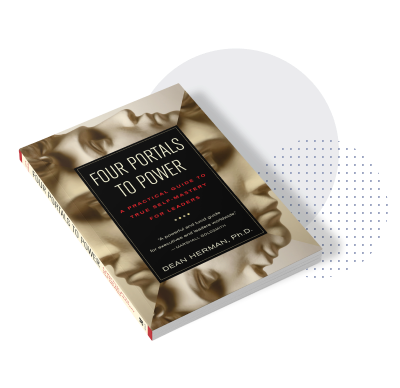Articles
Your Father is Talking to You
August 12, 2014 (Number 59) While observing an executive with his team recently, I noticed that he spoke in ways that were generating a lot of fear, self-doubt and, most likely, resentment. "Why is this taking so long?," he'd erupt. "Just get it done."Yet, at other times, he seemed oddly disengaged and out of touch with his team members. I could tell they found his behavior somewhat bewildering.
In my subsequent conversation with this executive, I wasn't surprised to learn that early in his life, his father had treated him in much the same way.
Leaders, I've found, often lead in the same way their fathers (or sometimes, mothers) "led" them. After all, our very first experiences with authority are generally with our fathers (or father-substitutes) and happen when our young brains are just forming.
Is it possible, then, that your leadership style is being determined by your father's past treatment of you? The problem with that is you may be automatically replaying your early life experiences from decades ago rather than deliberately choosing, based on your independent reflection, how to most effectively lead now.
To create more freedom for yourself and those you impact, consider these tips:
- Think of your leadership behaviors that you sense may not be particularly popular (or effective) with others. An important clue is those patterns you tersely defend with, "That's just the way I am." Then ask, "Do any of these behaviors reflect how my father treated me?"
- If you notice aspects of your leadership style that are the opposite of your father's past conduct, don't stop there. Question if these might be an emotionally-fueled reaction to his modelling rather than a carefully thought-out choice of how to best lead. For example, some leaders struggle with giving clear direction because they don't want to be like their domineering fathers.
- Finally, identify individuals whose leadership style you admire and start experimenting with integrating some of their approaches instead. See how that makes you feel — and how people start responding to you differently.
Dean Herman, Ph.D.


